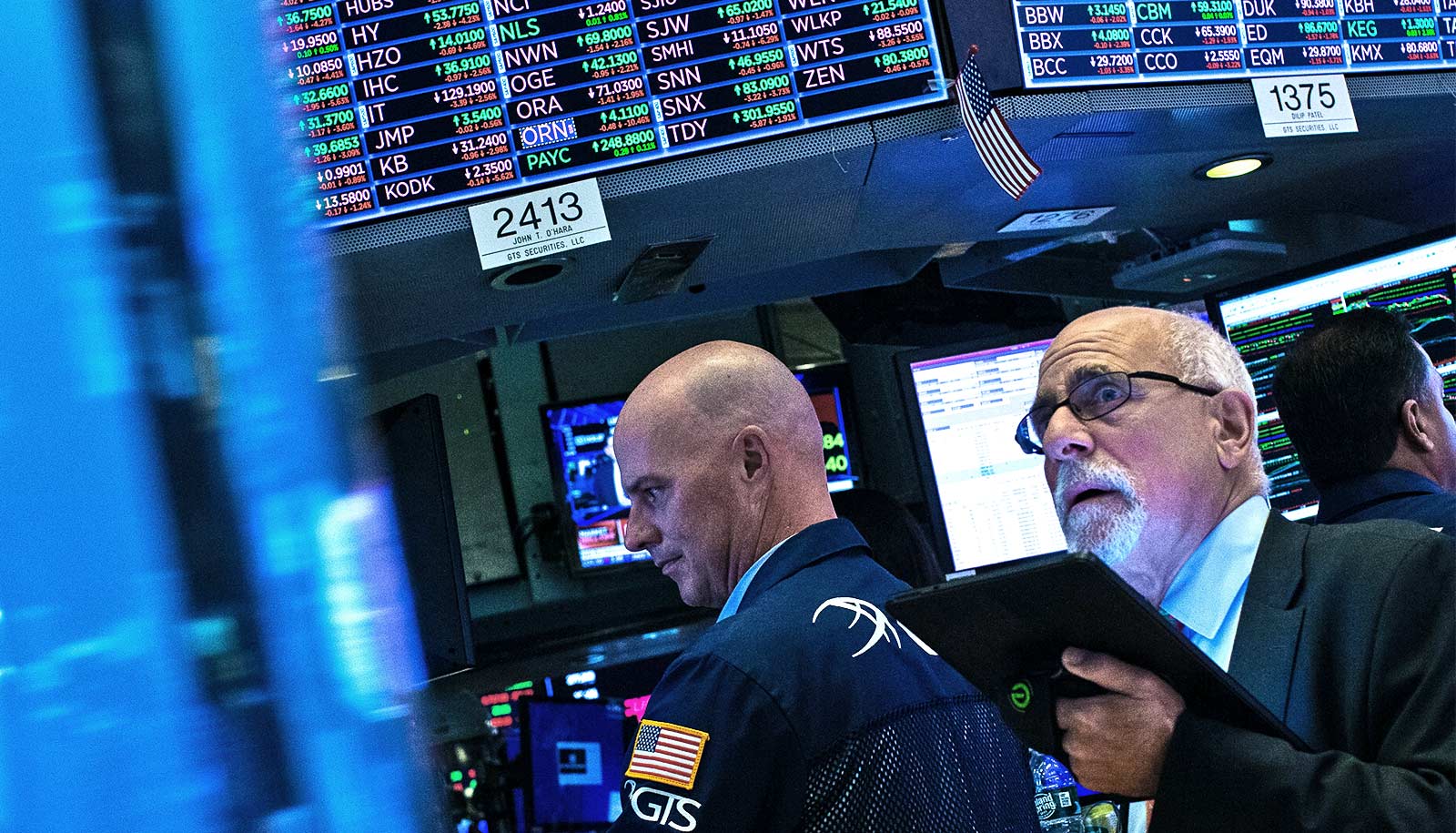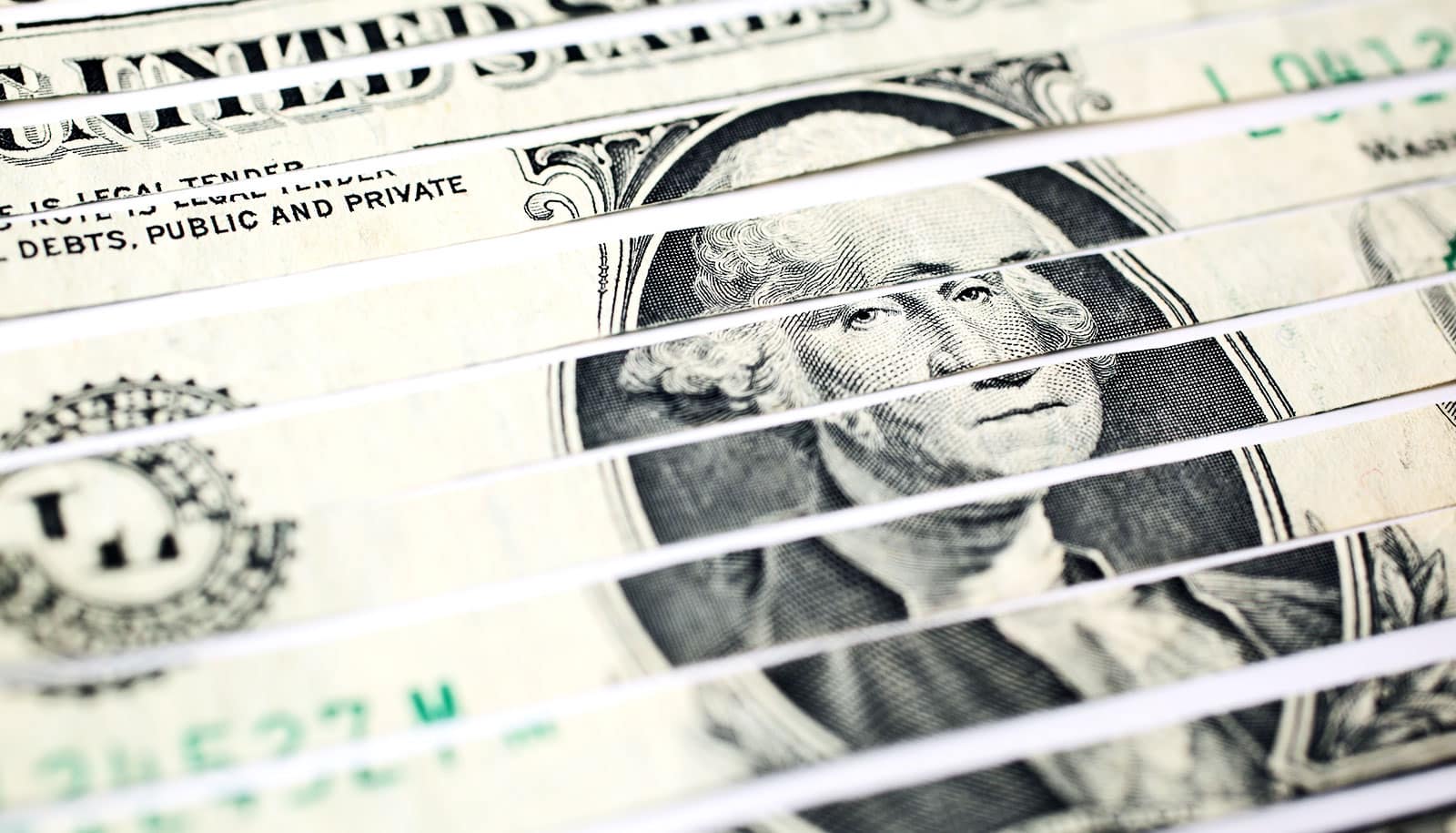The Dow Jones Industrial Average took a wild ride in August, prompting some politicians and analysts to talk about the possibility of a US recession. But one economist thinks that may be premature.
The Dow dropped 865 points over the first five days of the month, then, after a brief recovery, slid another 800 points in a single day the following week.
But Narayana Kocherlakota, a professor of economics at the University of Rochester, says the more important economic indicators look good. At the same time, he says there are some warning signs in the bond markets. His biggest concern, however, has to do with how the Federal Reserve would react in the unlikely event of a recession. As he explains, the Fed doesn’t have a lot of ammunition to offset a serious downturn in the economy.
Here, Kocherlakota explains his thinking and discusses the slow down in the stock market:
The Dow Jones Average seemed to be humming along nicely until July 31, which was the day the Fed announced a drop in interest rates. Was that a coincidence?
As I’ve previously indicated, we could see a downward response in the stock market, even if the Fed moved to cut interest rates. That’s because the market had already taken into account a quarter percentage point cut, and some investors were betting on an even bigger cut.
So in some sense, the move by the Fed was disappointing. While I was not surprised by the direction of the market’s response, I was surprised by the strength of the downward response in the wake of the Fed’s move.
To be clear, the fluctuations in the market do not indicate fluctuations in the US economy. The market is all forward looking—it’s about investor expectations. The backward-looking numbers—things like employment and inflation—all look good.
The Dow went through a series of ups and downs in August, dropping at one point to 25,479—1,700 points below where it was on July 30. What accounts for the erratic behavior?
Stock markets are volatile. It’s a long-standing issue in economics that we don’t fully understand the sources of volatility in the market.
The one thing we’ve learned over time is that it’s shaped less by what people expect will happen in the economy and more by their concerns about risks to the economy, both in terms of the quantity of perceived risk and how much extra return investors demand in order to bear that amount of risk.
What do the other economic indicators tell you?
When I was a monetary policymaker, serving as president of the Federal Reserve Bank of Minneapolis, the stock market played very little in my thinking. What I was trying to figure out is where the economy—unemployment, inflation, growth—was heading in the coming year or two, which is not an easy task.
I found that the more useful market signals came from the bond markets, where there are currently a lot of signs flashing red. Interest rates are very low around the world at all maturities, showing that the people holding those bonds are worried about very low-growth scenarios. As a policy maker, I’d be looking at those variables much more than I’d be looking at the stock market.
You don’t see a significant risk of a recession?
I’m still pretty sanguine about the economy. We’re going to see a slowdown on the employment front because of a reduction in population growth and in the number of people of prime age entering the workforce. But when I consider all the numbers in the economy, I’m fairly positive.
When you look at the bond markets, though, you do see concern over what would happen if a recession were to hit—the governments and central banks in particular have very little ammunition with which to offset that risk.
People like to make comparisons to the Great Recession of 2007 to 2009. Back then, the Fed had a lot more ammunition that it does now. The “normal” interest rate in 2007 was about 5%. Today the normal level of interest rates is about 2.5%, which means the Fed would be unable to boost employment to the same extent.
How is the trade war with China affecting the US economy?
While it’s certainly having an effect, trade is a relatively small portion of our economy. It’s the uncertainty about trade policy that’s really the bigger deal. The president seems willing to walk away from a number of norms and guidelines and interactions that we’ve had with trading partners. What’s that going to mean for the world? It’s the anticipation of something worse to come that’s a much bigger deal.
Is there anything that should or can be done to prevent the US from heading toward a recession?
The high tariffs with China and other trading partners are a negative for the US economy, but there’s a bigger issue, and that’s the president’s tendency to generate uncertainty in economic policy. First he supports the idea of a payroll tax cut, then he says maybe it won’t happen. These are self-inflicted wounds to the economy.
If he could tamp that uncertainty down, it would be much better for investors, policymakers, and others whose plans rely on some predictability about the economy.
Source: University of Rochester

